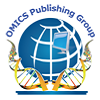Our Group organises 3000+ Global Conferenceseries Events every year across USA, Europe & Asia with support from 1000 more scientific Societies and Publishes 700+ Open Access Journals which contains over 50000 eminent personalities, reputed scientists as editorial board members.
Open Access Journals gaining more Readers and Citations
700 Journals and 15,000,000 Readers Each Journal is getting 25,000+ Readers
Indexed In
- Google Scholar
- RefSeek
- Hamdard University
Useful Links
Share This Page
Pankaj Vadgama

Pankaj Vadgama
Professor
School of Engineering and Materials Science
Queen Mary Univerisity of London
London
Biography
Pankaj VadgamaCSi, MB BS, BSc, PhD, FRCPath, FRSC, FInstP, FSB, Qualified in Medicine in 1971 and completed a degree in Chemistry (Class I) in 1976 at Newcastle University. He was MRC Training Fellow at the University of Newcastle 1977-80; a Registrar in Clinical Biochemistry at Newcastle General Hospital 1981-83; Director of the Biosensor Research Group, University of Newcastle 1983-88. He was Professor of Clinical Biochemistry at the University of Manchester 1988-2002, Research Dean, Faculty of Medicine 1997-99; Professor of Biomedical Materials and 1999-2000.He was Head of the Department of Clinical Biochemistry, Hope Hospital, Salford 1988-2000; In 2000 he was appointed Director of the Interdisciplinary Research Centre in Biomedical Materials, Queen Mary, University of London and Professor of Clinical Biochemistry. He has been Honorary Consultant Chemical Pathologist at Barts and the London/Barts Healthcare NHS Trust, London since 2000. His main research interest is in biomaterial surface interactions and the design of medical biosensors.
Research Interest
The main area of interest has been biosensors. This was initiated at PhD level with development of electrochemical transducers with surface immobilised biological recognition molecules (e.g. enzymes, antibodies) designed to respond directly to organic solutes (drugs, antigen, metabolites) of Biomedical importance. The particular strategy has been to develop permselective, biocompatible and biomimetic polymeric membranes capable of stable biochemical transduction in whole blood and tissue. Both in vivo and in vitro work has been undertaken, including the use of miniaturised needle-type devices for glucose and lactate monitoring in shock states. Additional research includes work on antimicrobial surfaces and drug release systems.

 Spanish
Spanish  Chinese
Chinese  Russian
Russian  German
German  French
French  Japanese
Japanese  Portuguese
Portuguese  Hindi
Hindi